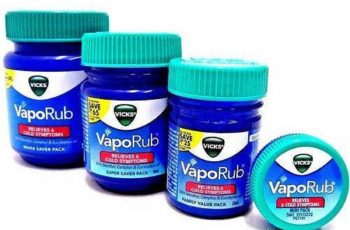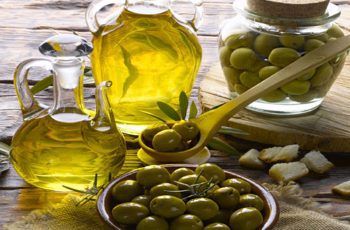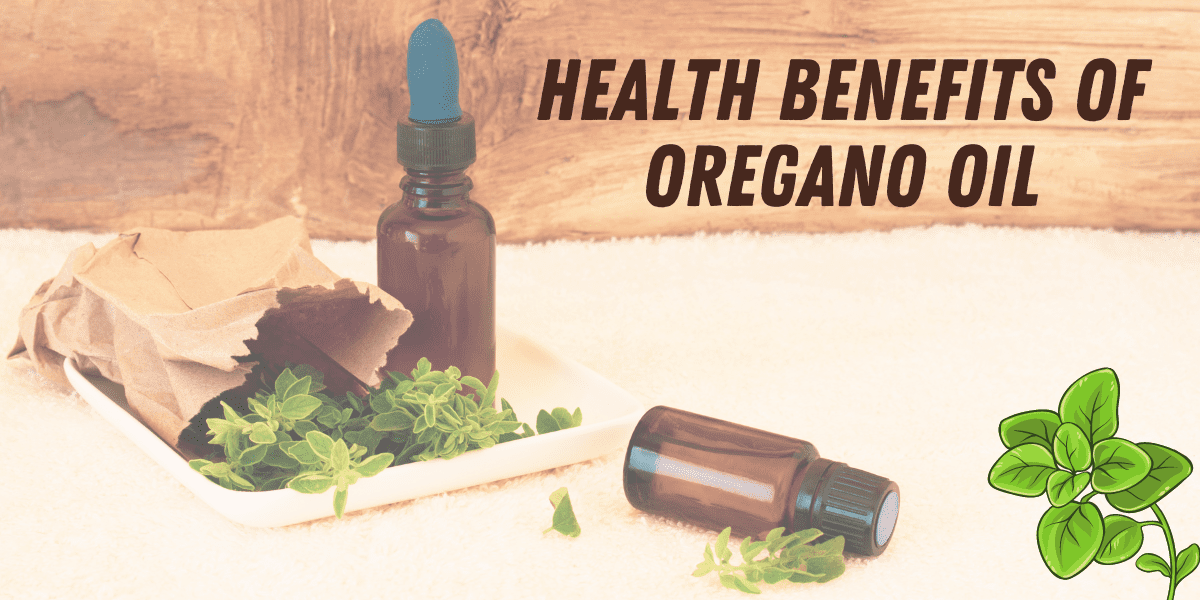
In comparison to some antibiotics, the health benefits of oregano oil are becoming more and more apparent, without the harmful side effects.
Doctors commonly prescribe antibiotics to anyone who enters their office. But unfortunately, most prescribed antibiotics have harmful side effects, such as the destruction of good gut bacteria (which kills the immune system), development of antibiotic resistance, reduction in vitamin absorption, and damage to the digestive tract lining, to name just a few. (leading to leaky gut).
When battling harmful bacteria, oregano oil is a better option. And it doesn’t stop there.
Oregano oil can treat or prevent a variety of infections, as well as act as an anti-inflammatory, reduce allergy symptoms, and possibly even lower cancer risk.
What is Oregano Oil?
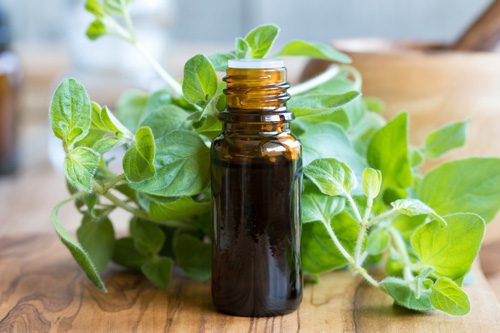
Oil extracted from wild oregano leaves, Origanum vulgare, is known as oregano oil. Ethanol or CO2 can be used as a solvent for extraction.
This small bushy mint relative is known as oregano. Of all the aromatic plants, oregano oil contains the most phenols, natural compounds with high antioxidant potential. Thymol and carvacrol are the two most common phenols in oregano oil, but carvacrol is arguably the most potent.
Oregano Oil vs. Oregano Essential Oil: Is There a Difference?
There is a common misunderstanding between oregano oil and oregano essential oil. However, there are significant distinctions between the two.
Oregano essential oil should only be used externally, whereas oregano oil can be taken orally.
An oregano steam distillation process is used to extract the oil from the plant’s dried leaves or flowering heads. A carrier oil like jojoba or almond oil can be used for topical application or put into a diffuser for aromatherapy purposes.
Oregano oil, on the other hand, is obtained through a solvent such as CO2 or ethanol and is suitable for oral administration.
15 Health Benefits of Oregano Oil
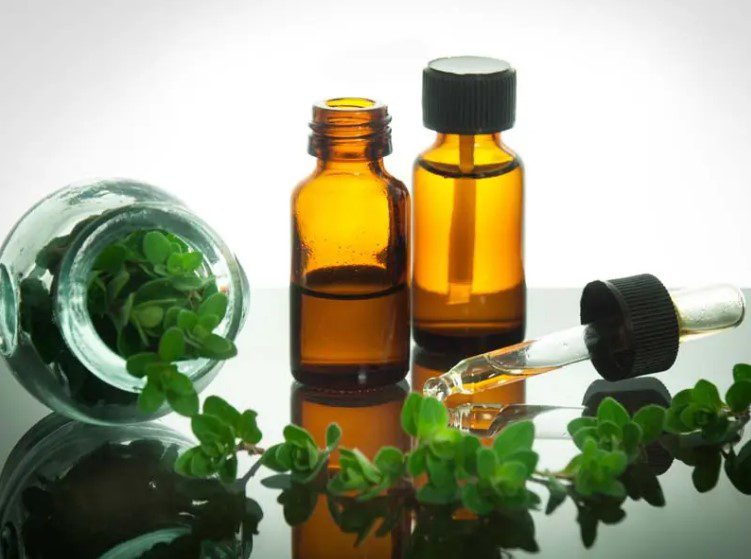
The antibacterial, antifungal, and antiviral properties of oregano oil are responsible for a wide range of health benefits. Carvacrol is cited in over 800 studies in PubMed, indicating that this oil has tremendous healing potential.
That being said, here are 15 health benefits of oregano oil:
1. Kills Bacterial Infections
By disrupting the cell membranes of pathogens, carvacrol is a highly effective fungicide and antiseptic. Allows cells and tissue damage to be repaired, boosts the immune system, and neutralizes free radicals.
At least 11 drug-resistant bacteria, such as Acinetobacter baumannii and Staphylococcus aureus, were tested in this study to determine whether oregano oil had any effect on them (MRSA). For all eleven strains, oregano oil had a significant antibacterial effect.
Oregano oil and silver nanoparticles have been shown in other studies to eliminate all tested multidrug-resistant bacteria effectively.
There is evidence that Origanum heracleoticum L., an unrelated species of oregano oil, is effective against clinical strains of E. coli and Pseudomonas.
2. May Help Fight Cancer
Many studies have shown that oregano oil’s primary active ingredient, carvacrol, is highly effective against tumors in animals and cultured cells. The anti-cancer properties of carvacrol in human oral squamous cell carcinoma were demonstrated in a recent study (OSCC).
Carvacrol was also an effective growth inhibitor in human non-small cell lung cancer (NSCLC) cells. In addition, oregano oil contains high levels of the aromatic compound thymol, which was found in yet another study to have apoptotic and antiproliferative effects on human cancer cell lines in the lung, breast, and prostate areas.
Most oregano oil research is based on animal and in vitro studies, so human patients may not experience the same results. As a result, oregano oil may potentially be used as a therapeutic agent in the future.
3. Reduces Allergies
Regarding allergies, the anti-inflammatory properties of oregano oil may surprise you.
Oregano oil contains rosmarinic acid, a naturally occurring ingredient that has been shown to reduce allergic reactions. These two white blood cells, which play a significant role in the allergic immune response, decrease in number.
4. Alleviates Food Poisoning Symptoms
In the event of food poisoning, oregano oil is an effective antimicrobial and antibacterial supplement.
Oregano oil has been shown to have antibacterial properties against various harmful bacteria, including E. coli, which is frequently found in food poisoning cases. All five bacterial strains were significantly inhibited by oregano oil, with E. coli showing the highest activity. This raises the possibility that oregano oil could be helpful in the treatment of gastrointestinal distress and deadly food contamination.
In animal studies, the Staphylococcus aureus bacteria, which frequently causes food poisoning, is inhibited by oregano oil.
5. Fights Fungal Infections
The antifungal properties of oregano oil have been used for centuries. An oregano oil treatment for Candida albicans (also known as yeast infections) has become increasingly popular in recent years.
It has been found that oregano oil completely inhibits the growth of Candida albicans in a study at Georgetown University Medical Center. In addition, researchers found that oregano oil supplementation was an effective way to keep yeast infections at bay.
Among other oregano oil constituents, carvacrol, thymol, and eugenol have been studied for their biofilm-destructive properties. Bacteria and other organisms form biofilms to protect themselves from the outside world. Their resistance to standard medical drug treatments is well-known.
Despite this, the potency of oregano oil means that it can break through Candida albicans biofilms, which can be highly resistant to anti-fungal drugs. Carvacrol was the most active terpene regardless of the biofilm’s age.
6. Natural Anti-Inflammatory
Oil of oregano, as previously discussed, is an excellent anti-inflammatory. Inflammation-inducing free radicals can be neutralized by their high concentration of antioxidants. Carvacrol and thymol, two powerful antioxidants, are found in high concentrations in oregano oil.
Chronic diseases like cancer, diabetes, neurodegenerative disorders, cardiovascular disease, and a host of others are primarily attributed to free radicals, which are unstable molecules in the body. Therefore, you can naturally reduce your chance of developing certain diseases by reducing chronic inflammation.
In one study, thyme and oregano essential oils were tested on mice suffering from colitis (a type of inflammatory bowel disease). Proinflammatory cytokines were found to be significantly reduced when the oils were applied. By interfering with inflammatory mediators such as prostanoids, carvacrol may aid in the healing of gastric ulcers.
7. Anti-Parasitic
Worms attempting to enter our bodies will be killed quickly by the acidic nature of oregano oil.
Oregano oil has been shown to have a positive effect on people who are experiencing symptoms of a parasitic infection in their digestive system. For six weeks, participants were given 600 mg of oregano oil. As a result, there was a “complete disappearance of Entamoeba hartmanni (four cases), Endolimax nana (one case), and Blastocystis hominis in eight cases” after daily treatment for six weeks. Seventy-seven percent were cured.
Patients who tested positive for parasites saw a significant improvement in their gastrointestinal symptoms and tiredness in seven of the 11 people who had been diagnosed.
8. Anti-Viral
Oregano oil has been shown to have antiviral effects against norovirus, the most common cause of gastroenteritis and also known as the winter vomiting bug.
By acting directly on the viral capsule and then the RNA, carvacrol could inactivate norovirus after just one hour of exposure. In addition, the HSV-1 herpes virus has also been found to be disrupted by oregano oil.
9. Treats Small Intestine Bacterial Overgrowth (SIBO)
If you or someone you know has small intestinal bacterial overgrowth (SIBO), you are well aware of this condition’s negative impact on health and well-being. Sadly, many people with SIBO are forced to use oral antibiotics that frequently fail to alleviate symptoms.
Oregano oil, on the other hand, may be the answer. Oregano oil is famous for people with SIBO and other gut imbalances because it helps fight yeast overgrowth and balances gut bacteria.
Research published in Global Advances in Health & Medicine found that herbal antimicrobials like oregano oil are just as effective at treating digestive tract infections like SIBO as rifaximin (Xifaxan). Slight improvement in SIBO symptoms was seen in nearly half of patients treated with either rifaximin (1,200 mg) or a herbal blend containing oregano oil over a 4-week period, compared to only 34% of patients treated medically. Furthermore, 57% of patients responded favorably to the herbal combination even after the antibiotics had failed to improve their symptoms.
10. Heals Wounds
Because of its antimicrobial and antibacterial properties, oregano oil is an excellent natural wound healer. Adding a few drops of oregano oil to a wound before it begins to heal can help keep it free of infection.
An oregano ointment was compared to regular petrolatum in a wound healing study. On post-surgical wounds, those who received oregano treatment were significantly less contaminated by bacteria and thus less likely to become infected. Also, oregano’s scar color, pigmentation, and pliability were statistically superior to petrolatum.
11. Natural Alternative to Antibiotics
In the right hands, antibiotics can be beneficial, but they are frequently overprescribed by doctors or prescribed for conditions that can be treated just as easily with herbs like oregano oil.
Bacteria can become resistant to antibiotics if they are overprescribed. Furthermore, antibiotics kill not only harmful bacteria but also good ones. You know, the microorganisms we need to maintain a healthy body. So if you’re looking for an antimicrobial agent that doesn’t harm beneficial microorganisms like bacteria, yeast, and fungi while protecting your own, oil of oregano is your best option.
Using oregano oil as a test subject, researchers from the Journal of Medicinal Food examined its antibacterial properties against five strains of bacteria. Oregano oil was found to have significant antibacterial properties that were effective against all five species of bacteria.
Oregano oils, according to a 2013 study published in the Journal of Medicinal Food, “represent an inexpensive source of natural antibacterial substances that exhibited potential for use in pathogenic systems.”
12. Repels Insects
Insect repellent and antiseptic properties of oregano oil are well-known. In addition, Carvacrol, thymol, and -terpinene, among other active terpenes, are highly effective at keeping mosquitoes away.
Aromatic oils in the herb are thought to repel insects. Oregano oil has been found to be just as effective as synthetic insecticides in the fight against the common beetle, Rhizoppertha Dominica, found in stored cereals.
13. May Help Reduce Side Effects from Medications/Drugs
A lesser-known benefit of oregano oil is its ability to lessen the side effects of various medications and pharmaceuticals.
Methotrexate (MTX) toxicity in mice can be reduced by phenol in oregano oil. Side effects of the drug, commonly used to treat cancer and rheumatoid arthritis, are well-known. Researchers say that the antioxidants and anti-inflammatory properties of oregano oil may help counteract these effects. It was found to be even more effective than the drugs that are commonly used to offset the adverse effects of MTX.
In another study, researchers found that oregano oil can counteract the adverse side effects of oral iron supplementation. According to some studies, carvacrol has been shown to interfere with some of the effects of iron therapy.
14. May Aid in Weight Loss
Supplementing with oregano oil may help those who are trying to lose weight.
It has been shown that mice fed carvacrol-enriched high-fat diets have a lower risk of obesity than those fed a regular diet. In addition, diets high in fat combined with carvacrol reduced weight gain and fat mass more than high-fat diets alone.
Regarding fat cell formation, carvacrol has reversed the chain of events that led to this development. Oregano oil may play a role in maintaining a healthy weight, but nothing is more important than a healthy diet and regular exercise.
15. May Help Lower Cholesterol
Finally, studies have shown that oregano oil may help lower cholesterol levels.
In one study, people with high cholesterol were given 0.85 ounces (25 mL) of oregano oil every meal, which showed lower cholesterol levels.
Researchers found that those who took oregano oil for three months had lower “bad” LDL cholesterol and higher “good” HDL cholesterol. In addition, phytochemicals carvacrol and thymol have been linked to oregano oil’s cholesterol-lowering properties.
How to Use Oregano Oil
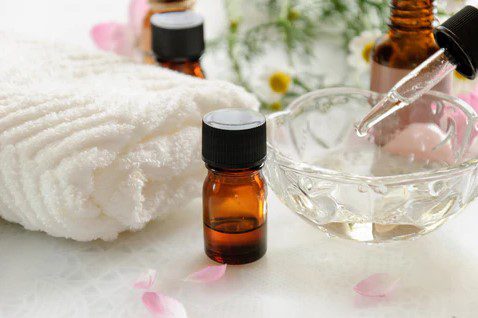
Capsules of oregano oil or tinctures of the oil are available. Your preferred method of consumption can be either one or the other. It’s straightforward to order it from the internet.
Because the potency of oregano oil supplements varies, it’s critical to follow the usage instructions provided by the company from which you purchase the product. In addition, no essential oil should ever be taken internally.
Oregano oil can be used in a variety of ways, as follows:
- Nasal congestion & lung infections: Using a diffuser, add 2-3 drops of essential oregano oil and inhale it.
- Sore throat: Consume 2-3 drops in a glass of water 2-3 times per day or until symptoms subside, whichever occurs first.
- Acne, cold sores, shingles, or psoriasis: Do not use it on broken or sensitive skin. Mix 1-2 drops with a small capful of coconut oil or aloe vera gel and apply to the skin.
- Candida and fungal infections: Take 2-4 drops daily for up to ten days. Also, if you have a fungal infection on your feet or your toes, you can mix some oregano oil with an antifungal oil, such as jojoba oil.
- Aches, sore muscles, and backaches: The same portions of oregano oil and organic olive oil should be applied to sore muscles to levitate discomfort.
- Immune system booster: Before each meal, take 3-4 drops in a glass of water.
- Intestinal worms and parasites: ForTake5 drops of oregano oil internally.
- B for up to ten days breath: To eliminate badharmfuleath-causing bacteria, brush your teeth with toothpaste containing one doneop of oregano oil.
Is It Safe to Take Oregano Oil?
Generally speaking, more adults and children can safely take oregano provided the supplement’s manufacturer’s instructions are followed.
When it comes to pregnant women, oregano oil is generally not safe. Be Check your doctor before adding oregano oil to your regimen if you are currently taking prescription medications.
Oregano oil is pervasive and should always be diluted before consumption or application to open skin. Apply to the skin by cutting in jojoba or coconut oil o diluting in water before consumption.
Herxheimer is a reaction to the toxins released by pathogens as they die when oregano oil is used therapeutically for detoxification. Due to this, you may feel drained and prone to headaches and even nausea. If this happens to you, you must drink a lot of water and temporarily discontinue using oregano oil. Use slower increments the next time.
The Bottom Line
An excellent natural supplement, oregano oil has many health benefits, including boosting your immune system and aiding indigestion.
In addition to acting as a natural antibiotic, it has been shown to lower cancer risk, fight off yeast infections, heal the gut, and reduce inflammation. The oil of oregano should only be used internally. Only apply essential oregano to the skin or inhale it for respiratory problems if you’re using it topically.



